Scale support with AI customer service chatbot solutions. Deliver 24/7 assistance, cut response times, and boost satisfaction while reducing costs across every customer channel.

Akshat Mandloi
Updated on
January 8, 2026 at 1:24 PM
Customer support leaders today face a clear challenge: growing ticket volumes, higher expectations, and limited capacity to scale. Adding more agents is no longer sustainable when customers demand instant, always-on assistance.
AI chatbots now play a central role in solving that problem. Studies show they can reduce support costs by up to 30%, allowing enterprises to redirect resources toward strategy, training, and customer experience. Beyond efficiency, they bring consistency, availability, and personalized interactions to every customer touchpoint.
Key Takeaways
AI chatbots enable companies to automate up to 70% of routine support inquiries, reducing costs by 25–30%, improving agent productivity, and supporting instant, around-the-clock customer service.
Leading chatbot platforms in 2025, such as Smallest.ai, offer scalable automation for global enterprises, SMBs, regulated sectors, and omnichannel support needs.
Implementing chatbots delivers measurable results, including faster response times, higher satisfaction, a lower ticket backlog, ROI gains, and the ability to manage surges without hiring additional agents.
Real-world case studies (Loop Earplugs, Tile, Intercom, Smallest.ai) highlight dramatic ROI, reduced human intervention, and operational resilience gained by integrating chatbots across customer channels.
Successful scaling requires choosing solutions that match your business needs, aligning deployment tightly with data and workflows, and iterating on metrics for continuous improvement.
This article explores how to scale support with AI customer service chatbot solutions that combine automation with intelligence.
Why Scaling with AI Chatbots Is a Game-Changer
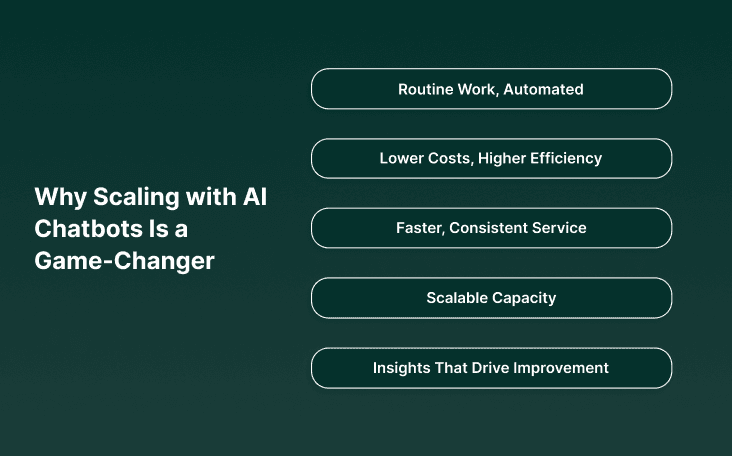
Customer expectations are rising faster than most support teams can keep up with. Instant replies, personalized communication, and 24/7 availability are now baseline requirements. Meeting those demands with traditional teams alone is costly and unsustainable.
Scaling with AI customer service chatbot solutions turns support from a reactive function into a proactive, data-driven capability that grows with your business.
Routine Work, Automated: AI chatbots resolve up to 70% of standard inquiries without requiring human input, thereby reducing queues and freeing agents to handle complex, high-value cases. Productivity improves while burnout decreases.
Lower Costs, Higher Efficiency: Automation reduces support costs by 25–30%, allowing enterprises to reinvest in training, tools, and customer initiatives. Costs scale gradually, not exponentially.
Faster, Consistent Service: Chatbots operate continuously, reducing first-response times by 30% and maintaining consistent tone and accuracy across thousands of interactions—boosting satisfaction and loyalty.
Scalable Capacity: AI systems expand instantly with demand, handling 1,000 or 100,000 interactions at the same precision. Global coverage becomes achievable without proportional hiring.
Insights That Drive Improvement: Every interaction generates data on sentiment, intent, and trends. These insights refine knowledge bases, training, and product strategy, ensuring support gets smarter with scale.
For CX and operations leaders, AI chatbots represent a strategic advantage—enabling support that is faster, leaner, and built to scale without losing quality or human connection. It is the foundation of a modern, efficient, and customer-first enterprise.
Top 15 AI Customer Service Chatbots (2025 Overview)
Selecting the right AI customer service chatbot solution can determine how effectively your support operation scales. The tools below represent the best-performing platforms of 2025, each tested by enterprises and growing businesses for their automation capabilities, reliability, and depth of integration.
Whether you manage a global contact center or a fast-growing SaaS support team, these solutions showcase the most capable chatbots designed to meet modern service demands.
1. Smallest.ai Atoms
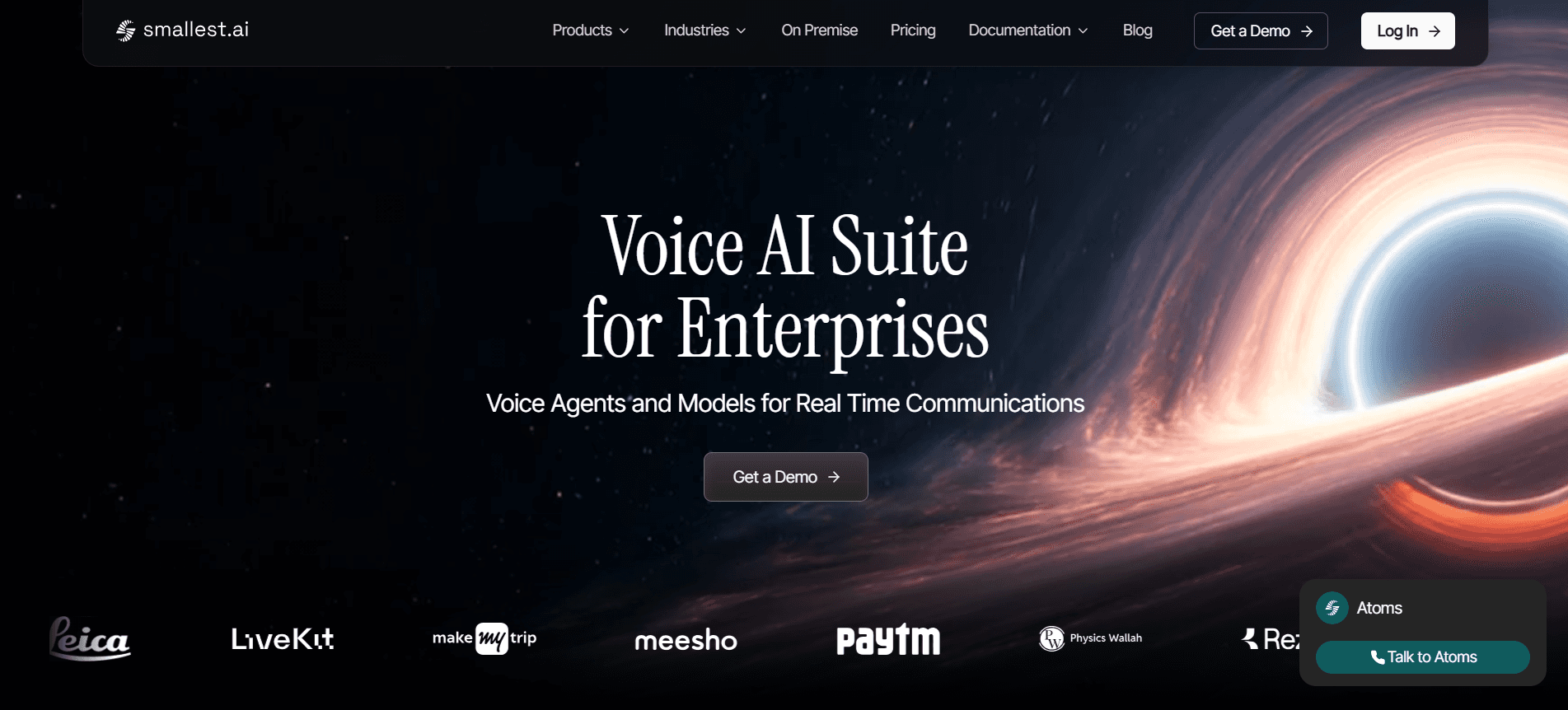
Smallest.ai’s widget combines chat and voice into a single AI system, designed for real-time, human-like interaction. Its low latency and accuracy make it stand out for enterprise-scale deployments.
Use Case / Strength: Real-time, multilingual voice + chat AI with sub-100ms latency.
Key Features: Contextual understanding, voice cloning, SDKs, on-prem or cloud hosting.
Results: Enables consistent, human-like support experiences globally.
Considerations: Requires strong alignment with internal systems for best results.
Best For: Enterprises with complex voice-heavy customer support.
Pricing: Free and paid self-serve options; business and enterprise pricing available on request.
2. Ada
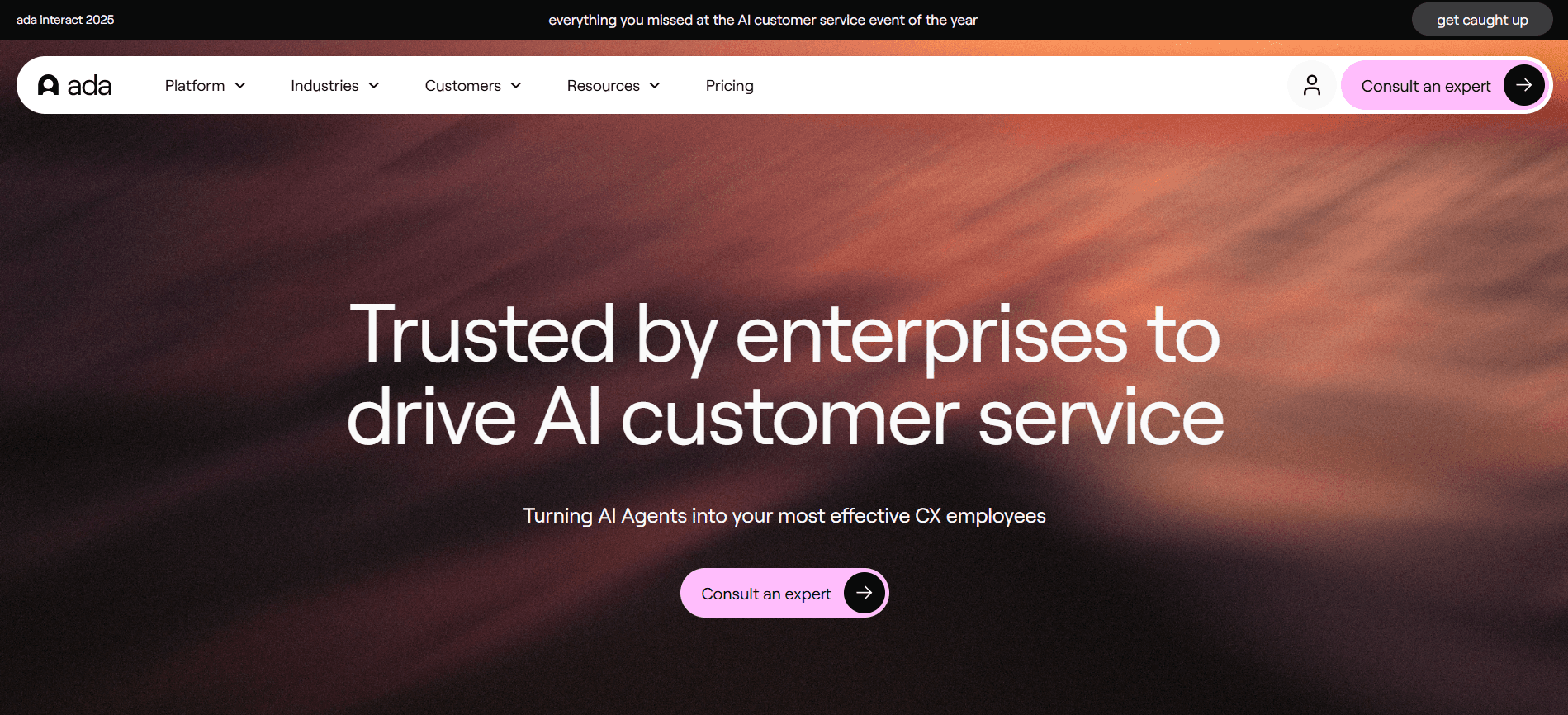
Ada is designed for enterprise automation at scale, combining simplicity with advanced AI performance. It empowers customer service teams to automate global, multilingual conversations through a no-code interface.
Use Case / Strength: Global brands that handle large-scale, multilingual customer interactions.
Key Features: No-code builder, multilingual support (over 50 languages), intelligent intent detection, and analytics dashboard.
Results: Companies automate 60–80% of tier-one requests with improved consistency.
Considerations: High-level customization benefits from expert implementation.
Best For: Enterprise CX teams managing international support operations.
Pricing: Custom usage-based pricing is available. Please contact sales for details.
3. Tidio
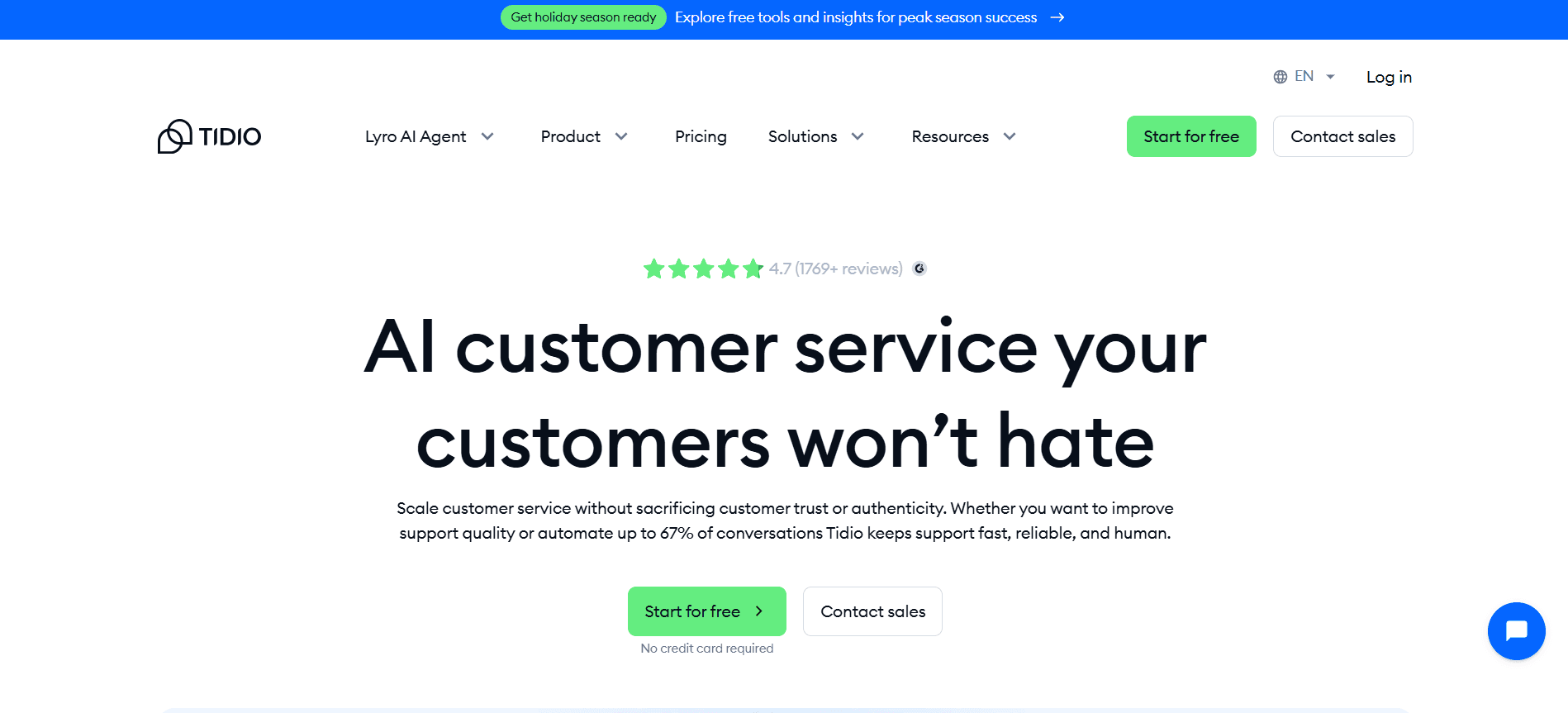
Tidio bridges the gap between affordability and performance for smaller teams that want to scale customer service with AI. Its simplicity and template-driven setup make it perfect for startups and online stores.
Use Case / Strength: SMBs and startups looking for cost-effective AI and live chat.
Key Features: Plug-and-play setup, predefined templates, multichannel chat, and visitor tracking.
Results: Businesses often see 2x engagement and faster pre-sales responses.
Considerations: Limited scalability for large, multi-region setups.
Best For: Growing SMBs or eCommerce stores scaling customer service.
Pricing: A free plan is available; paid plans start at around $29/month, with volume-based upgrades.
4. Zendesk AI
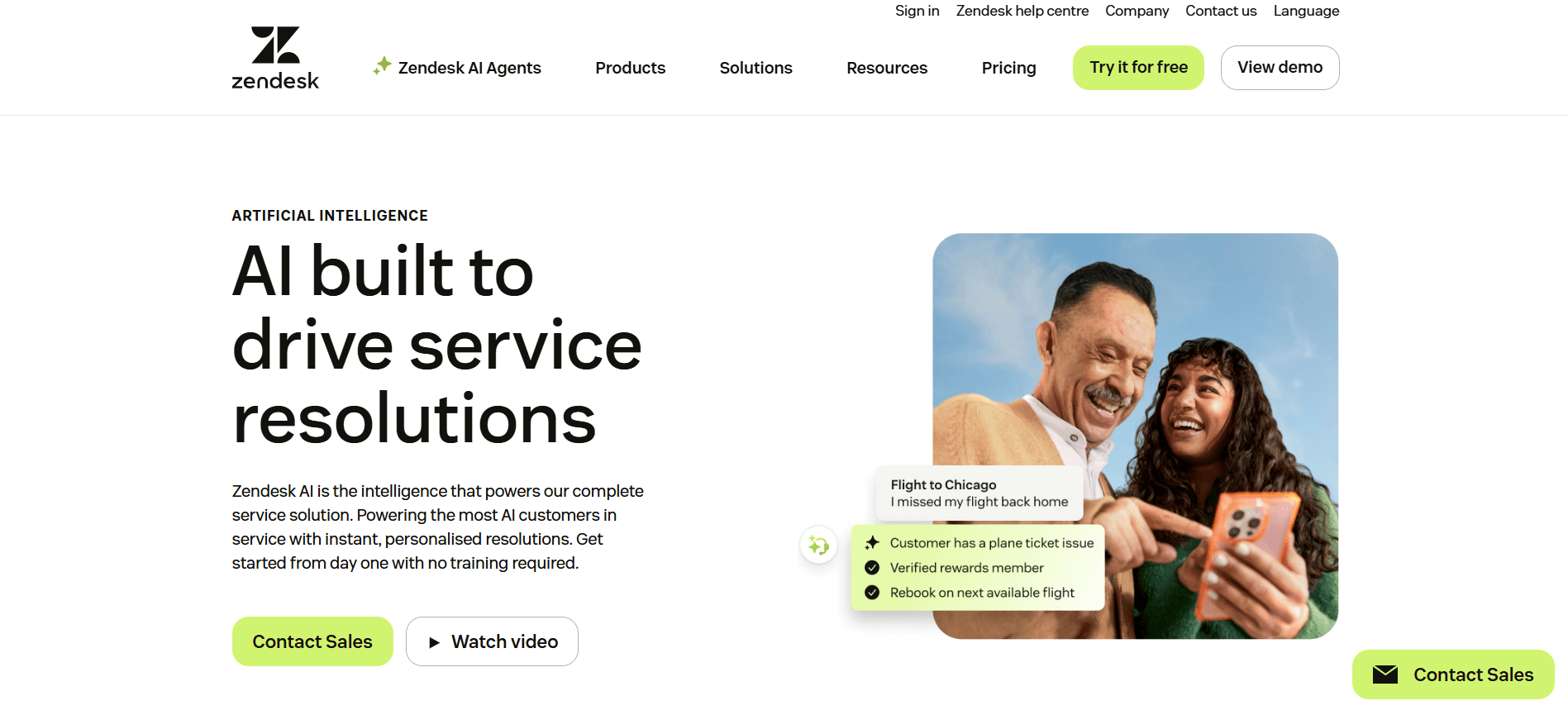
Zendesk AI integrates intelligence into one of the world’s most trusted support platforms. It turns ticket data into actionable automation that reduces agent workload and improves routing accuracy.
Use Case / Strength: Large support teams looking to enhance Zendesk workflows with AI-driven responses.
Key Features: Ticket classification, intent detection, automated routing, and contextual macros.
Results: Many teams achieve 40% faster ticket resolution rates.
Considerations: Works best with large, well-labeled historical data sets.
Best For: Enterprises already running Zendesk.
Pricing: Core plans start at $19/agent/month; AI is included in premium tiers or as an add-on.
5. Drift
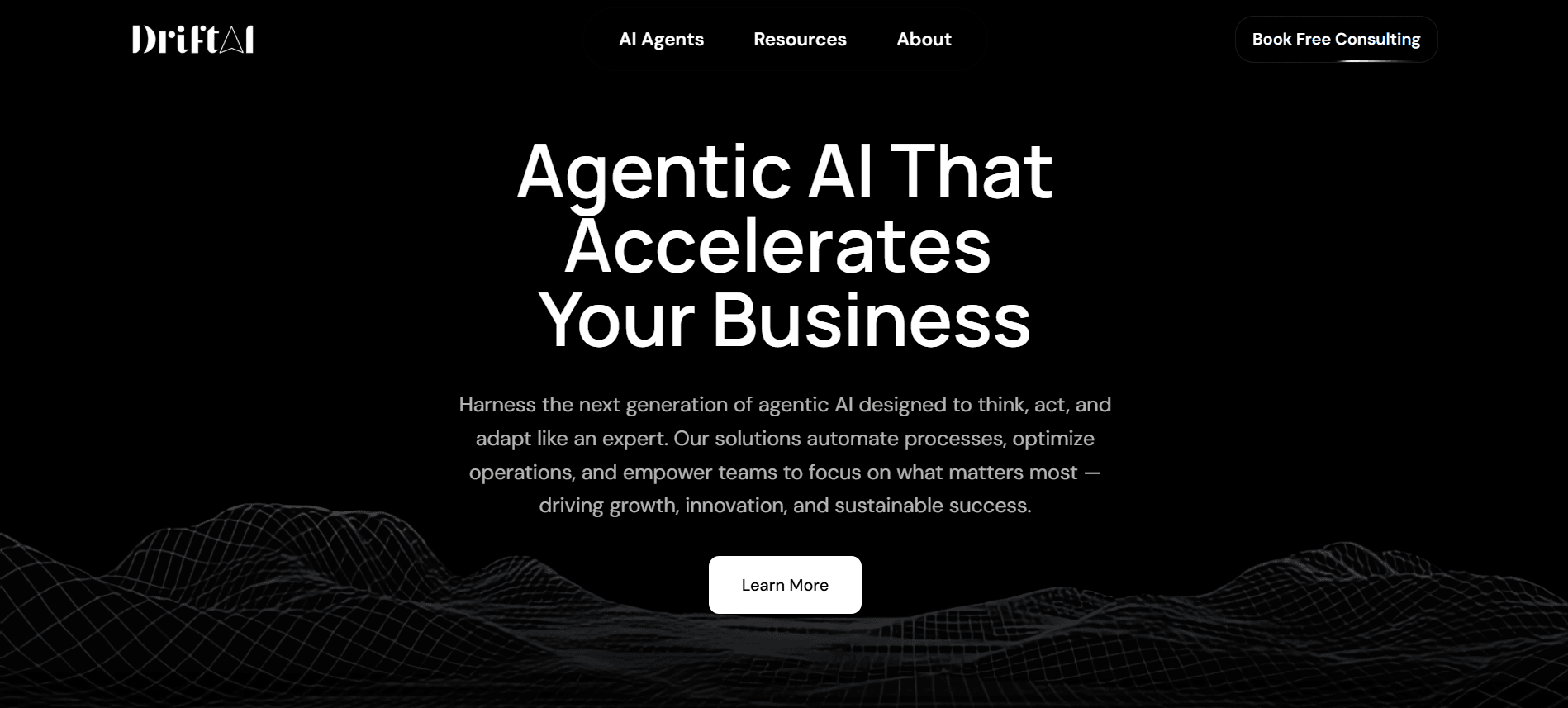
Drift redefines customer engagement by blending conversational AI with sales enablement and support. It helps organizations connect with customers instantly, resolving inquiries while driving qualified leads.
Use Case / Strength: B2B SaaS and revenue teams balancing sales and support automation.
Key Features: Automated conversation routing, qualification logic, meeting scheduling, CRM sync.
Results: Improved conversion rates and reduced manual handling.
Considerations: The feature set may exceed the pure support use cases.
Best For: B2B organizations integrating support and sales automation.
Pricing: Custom enterprise pricing; contact sales.
6. Freshdesk Freddy AI
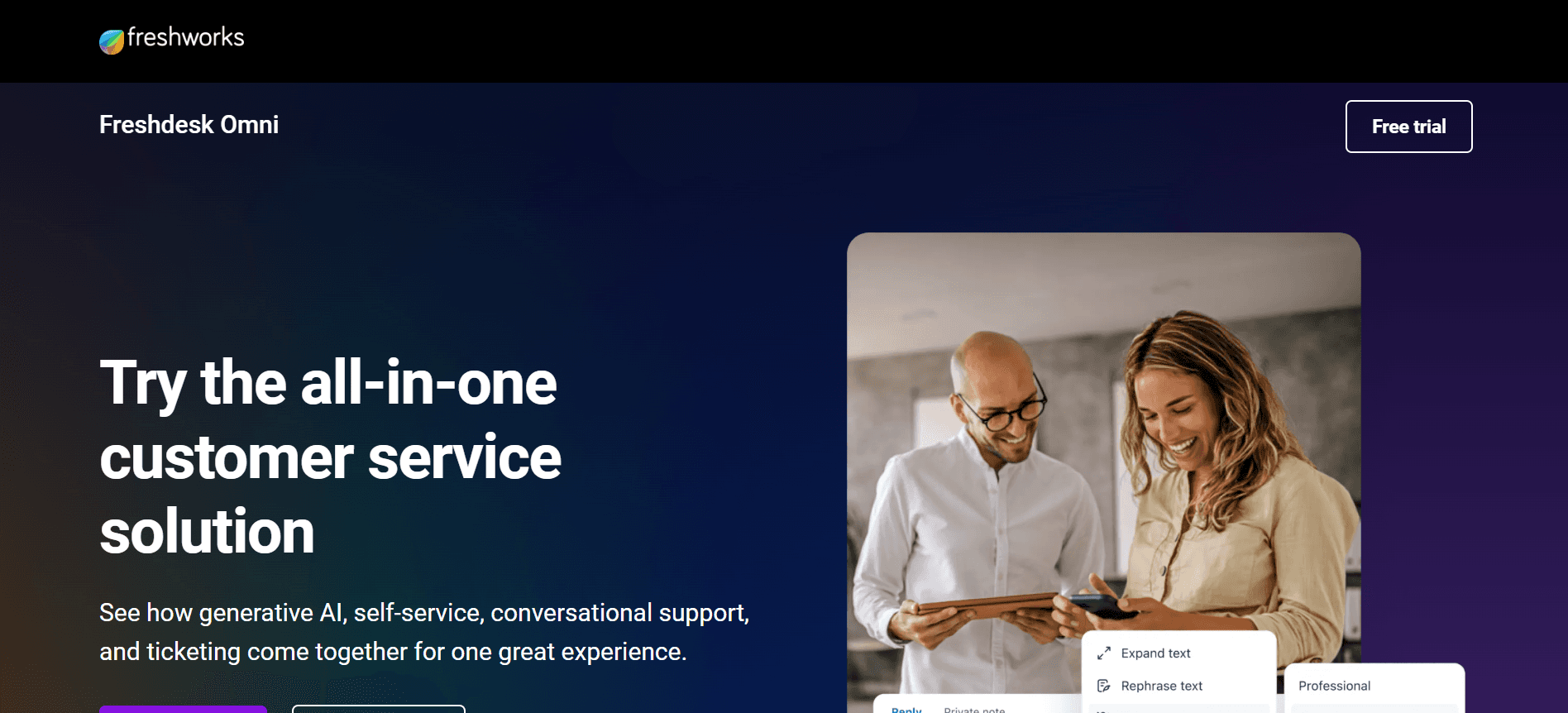
Freddy AI enhances Freshdesk by adding intelligence, enabling teams to analyze conversations, understand intent, and deliver contextual replies without requiring human intervention.
Use Case / Strength: Teams using Freshdesk who want AI-driven workflow optimization.
Key Features: Sentiment analysis, contextual reply suggestions, agent assist, workflow automation.
Results: 25% improvement in first-contact resolutions on average.
Considerations: Works best with structured tagging and consistent data hygiene.
Best For: Support teams scaling within the Freshworks ecosystem.
Pricing: Available on Freshdesk Growth+ tiers starting at $15–$29/agent/month.
7. HubSpot Chatbot Builder
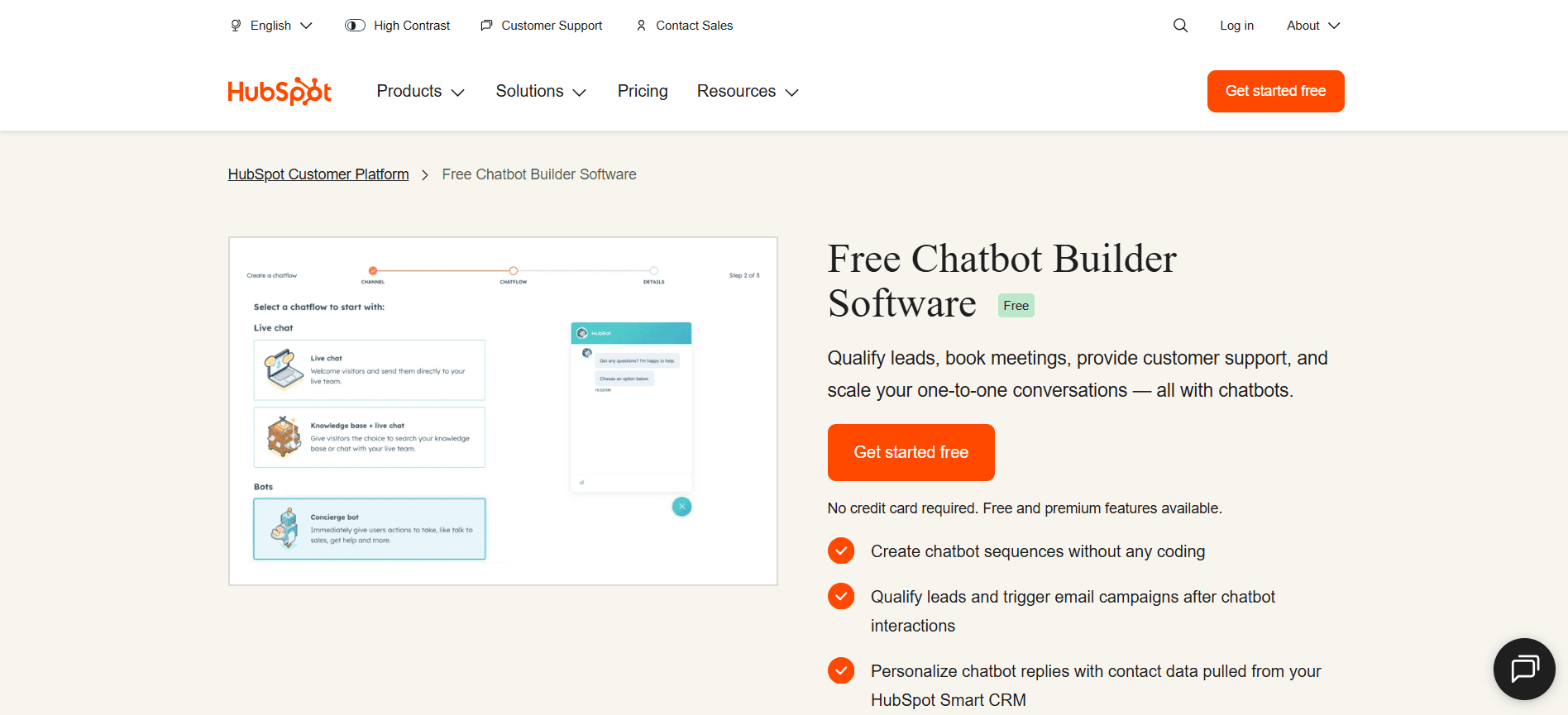
HubSpot’s chatbot builder connects customer interactions with your CRM, turning every chat into an opportunity for deeper engagement and service personalization.
Use Case / Strength: Businesses already on HubSpot looking to unify marketing, sales, and support.
Key Features: CRM-based personalization, lead routing, ticket creation, and meeting scheduling.
Results: Faster triage and improved response alignment across teams.
Considerations: Limited advanced service automation for complex inquiries.
Best for: Mid-sized organizations that unify customer acquisition and retention.
Pricing: Included with Service Hub; paid tiers start at $20/user/month.
8. LivePerson
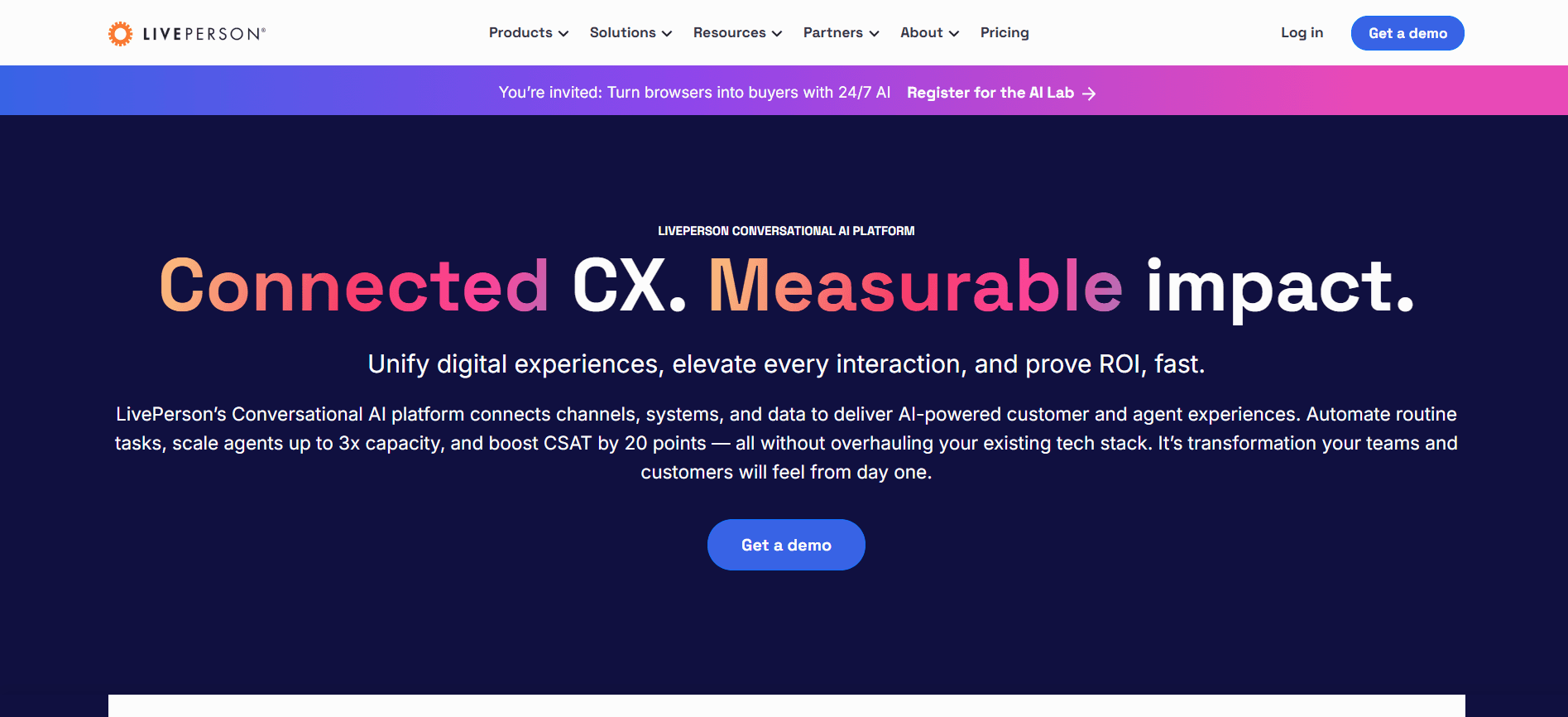
LivePerson enables digital commerce support through AI-guided conversations that assist customers throughout their shopping journey.
Use Case / Strength: Retail and eCommerce brands offering live buying assistance.
Key Features: Conversational checkout, product discovery, cart recovery, and analytics.
Results: 15–20% higher conversion rates and improved repeat purchases.
Considerations: Requires close integration with product and payment data.
Best For: Retail and eCommerce CX leaders.
Pricing: Custom enterprise pricing based on message volume and channel mix.
9. Netomi
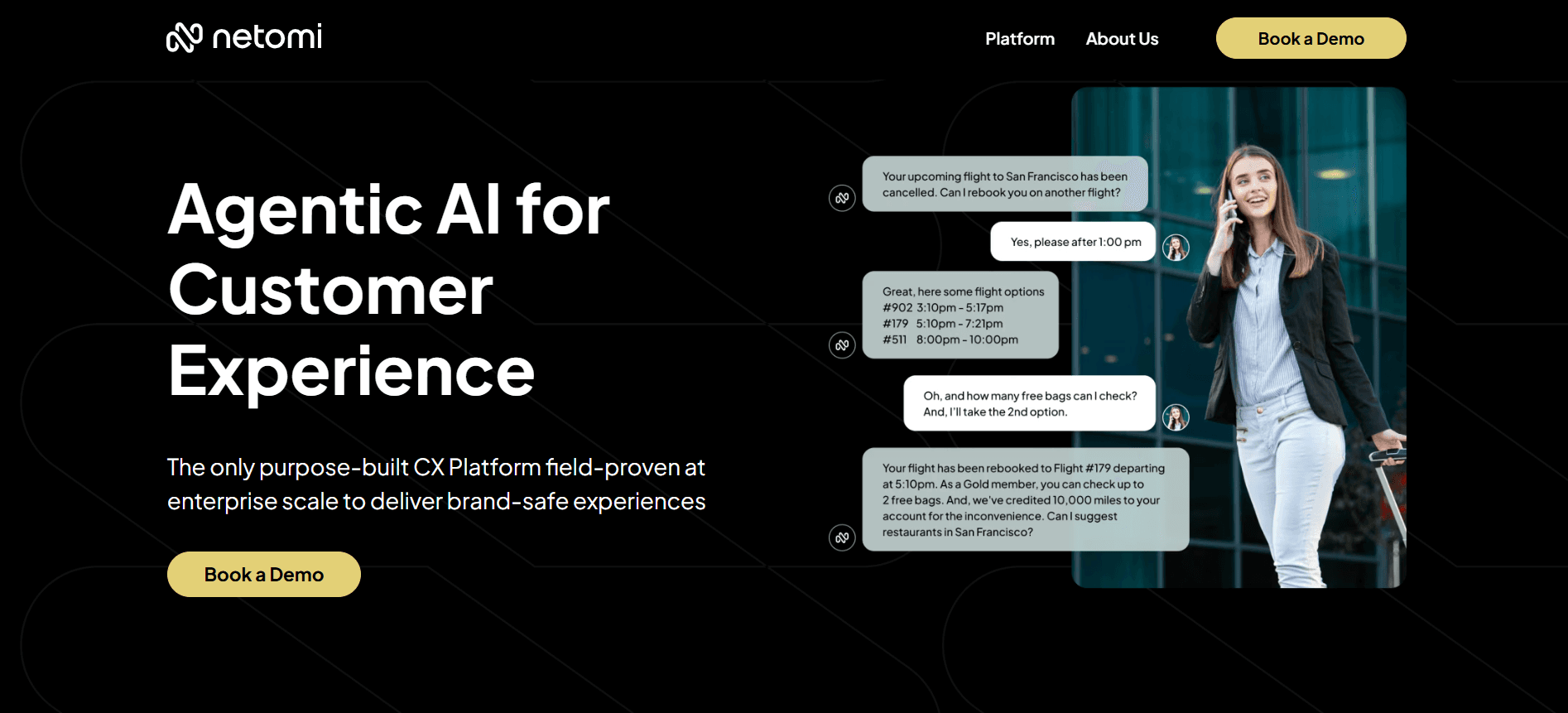
Netomi stands out for accuracy, compliance, and reliability in heavily regulated industries. It delivers human-quality responses backed by deep learning and secure integrations.
Use Case / Strength: Secure AI automation for regulated industries like finance and healthcare.
Key Features: NLP-based intent handling, automated case resolution, API-level security.
Results: Up to 90% ticket automation for tier-one issues.
Considerations: Requires defined compliance processes.
Best For: Regulated enterprise sectors.
Pricing: Custom; enterprise-only deployment.
10. Zoho SalesIQ (Zobot)
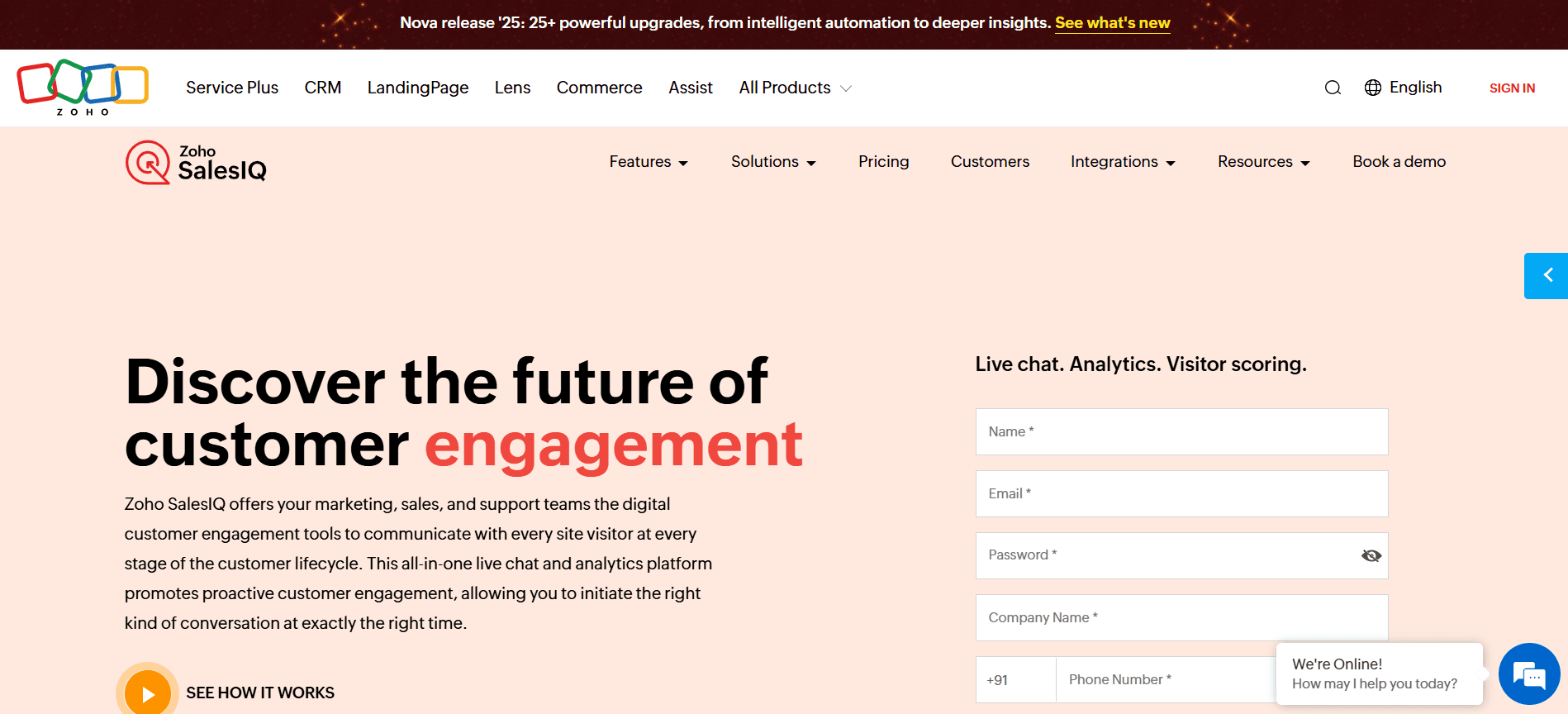
Zoho SalesIQ’s Zobot automates engagement using predictive analytics and chat logic. It connects directly with CRM data to personalize every conversation.
Use Case / Strength: Mid-market organizations integrating support with marketing and analytics.
Key Features: Rule-based + AI logic, proactive chat triggers, Zoho CRM sync, analytics dashboard.
Results: Higher customer retention and lead conversion.
Considerations: May need scripting for advanced use cases.
Best For: Businesses in the Zoho ecosystem.
Pricing: Plans start from $10–$25/user/month, depending on features.
11. Chatfuel
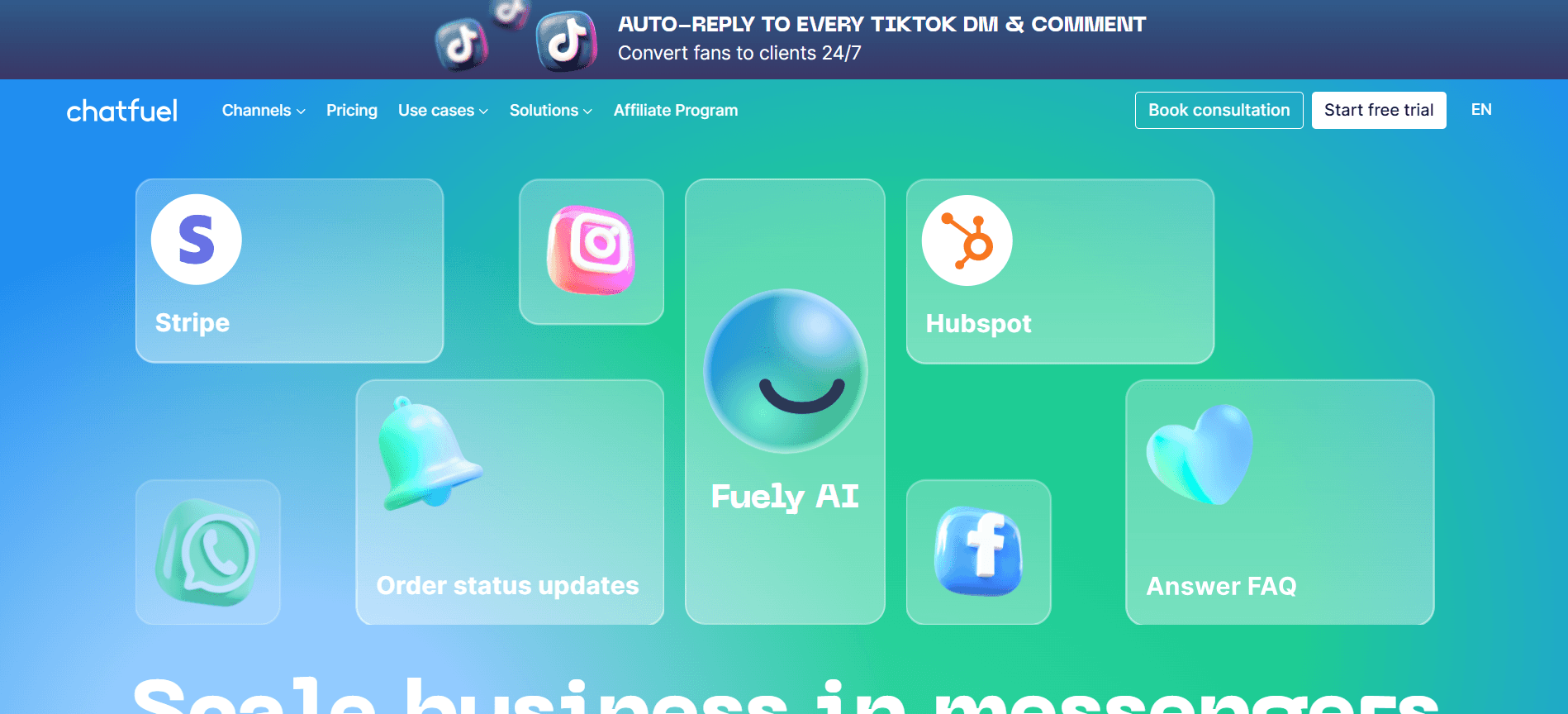
Chatfuel brings social messaging automation to life, helping brands manage thousands of interactions across WhatsApp and Messenger without overloading their agents.
Use Case / Strength: D2C and retail brands using social chat channels for engagement.
Key Features: Prebuilt templates, automated order tracking, marketing flows, and CRM integration.
Results: 2–3× higher engagement on chat channels compared to email.
Considerations: Limited to social platforms.
Best For: Social-commerce and D2C brands.
Pricing: Starter plans range from $15 to $30/month; enterprise options are also available.
12. Heyday by Hootsuite
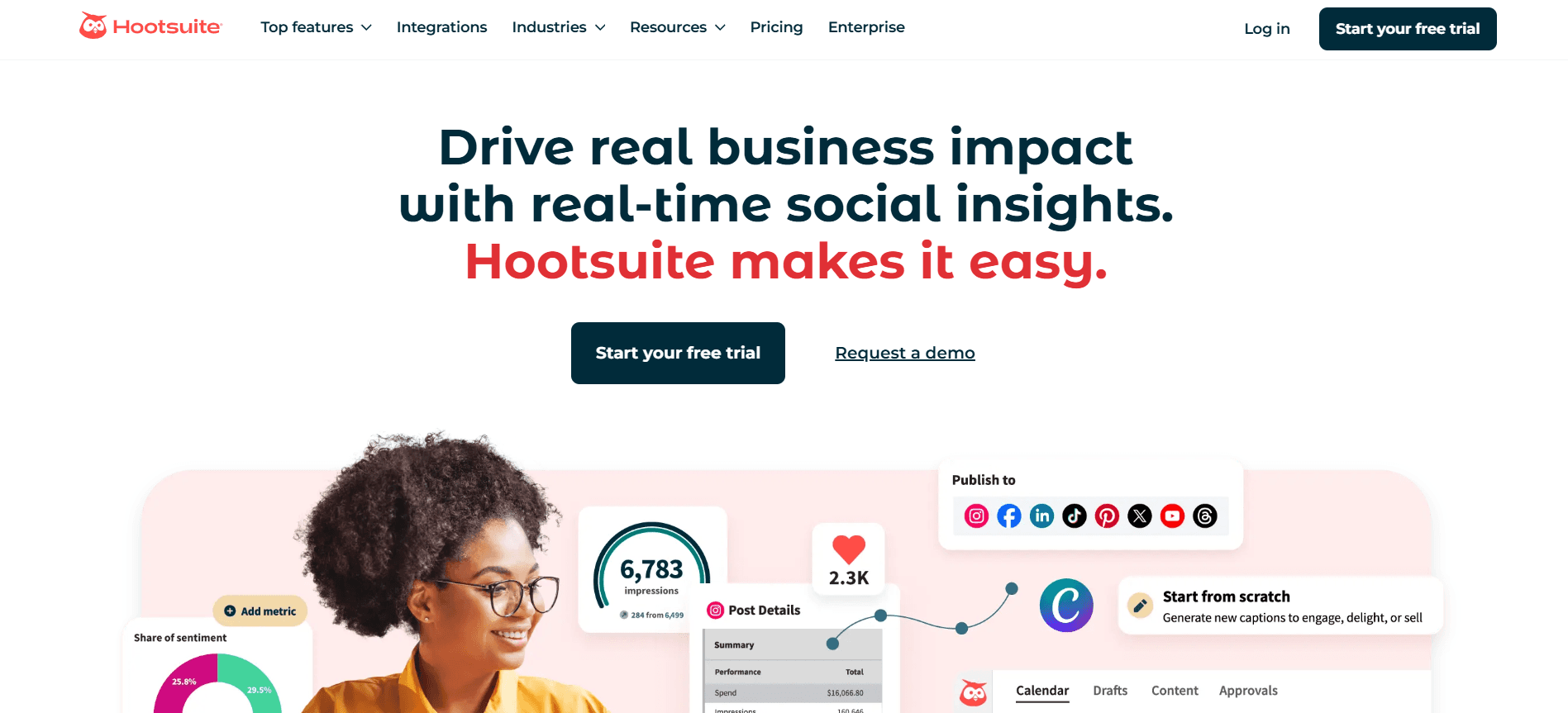
Heyday combines retail support and conversational commerce, enabling customers to find products and track orders within a single chat experience.
Use Case / Strength: Retailers seeking seamless product discovery and post-sale support.
Key Features: Product recommendations, cart recovery, order tracking, and real-time analytics.
Results: Reduced returns and increased post-purchase satisfaction.
Considerations: Dependent on catalog and eCommerce integrations.
Best For: Multi-brand online retailers.
Pricing: A custom quote is based on transaction volume and features.
13. Yellow.ai
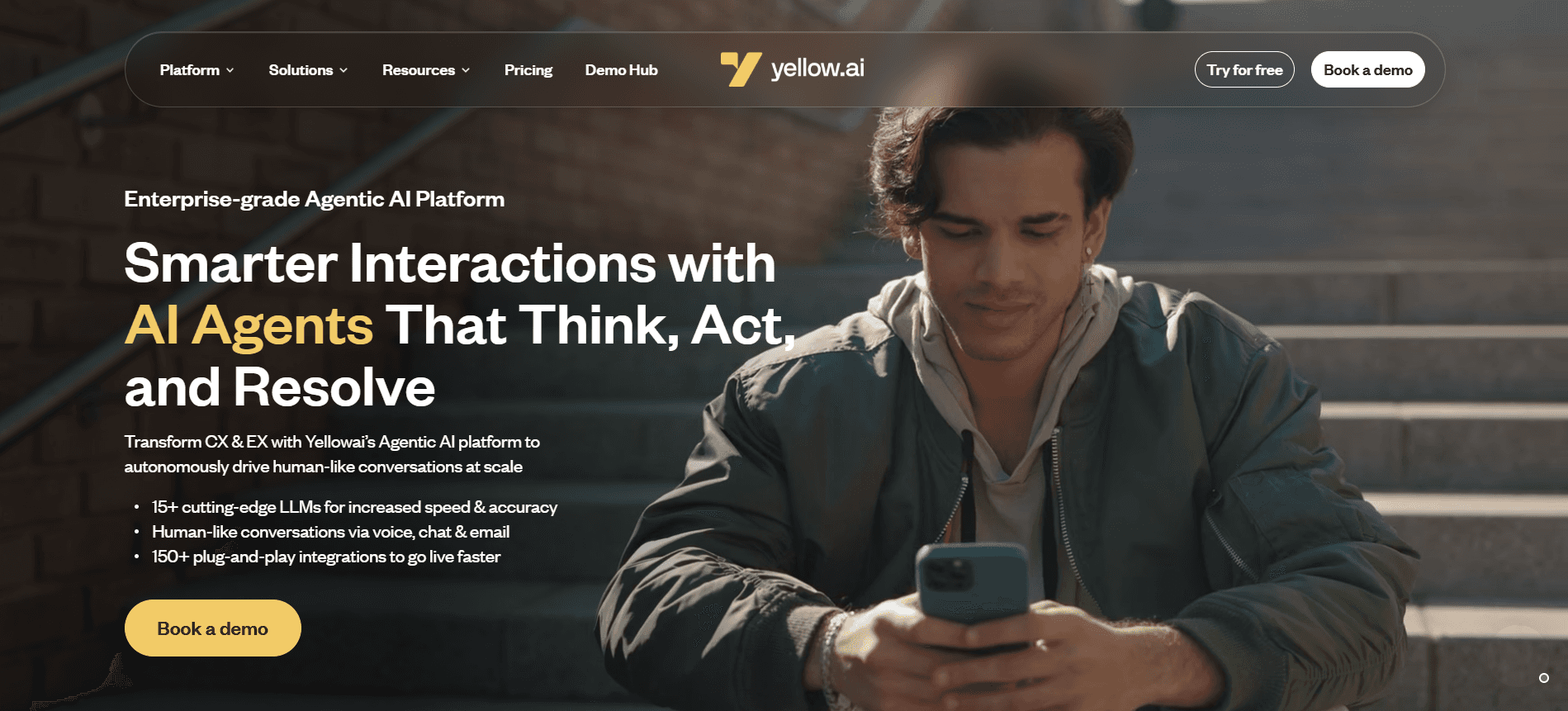
Yellow.ai brings automation to both chat and voice channels with deep learning and enterprise readiness. Its global reach and flexibility make it ideal for large-scale deployments.
Use Case / Strength: Enterprises running multilingual, omnichannel customer support.
Key Features: Sentiment routing, voice + chat AI, real-time reporting, multi-region support.
Results: 20–30% reduction in handling time and higher CSAT.
Considerations: Works best with expert implementation.
Best For: Global enterprise CX operations.
Pricing: Enterprise pricing based on users, channels, and scale.
14. Intercom Fin
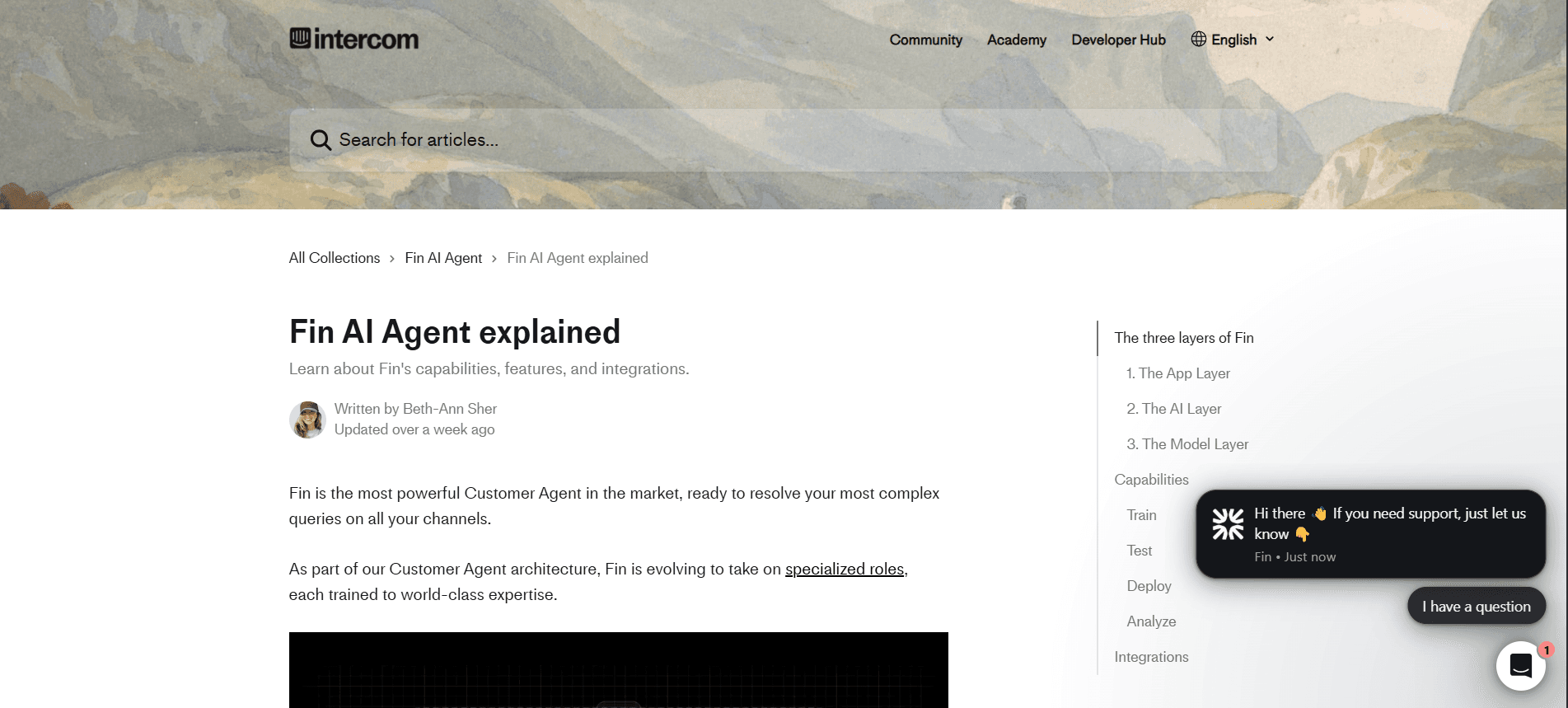
Intercom Fin is one of the most widely adopted AI customer service chatbot solutions for SaaS and enterprise support teams. It focuses on resolution accuracy rather than simple automation, using AI that learns from your own knowledge base and conversation history.
Use Case / Strength: AI-driven automation that learns from internal support data to improve resolution accuracy.
Key Features: Context-aware answers, automated triage, deep helpdesk integration, AI analytics.
Results: Teams report 30% faster first responses and up to 40% fewer escalations.
Considerations: May require developer time for complex routing setups.
Best for: SaaS and enterprise support teams that optimize efficiency without compromising quality.
Pricing: Fin AI costs $0.99 per resolved conversation, plus an Intercom Helpdesk seat (starting at approximately $39/user/month).
15. Kustomer IQ (Meta)
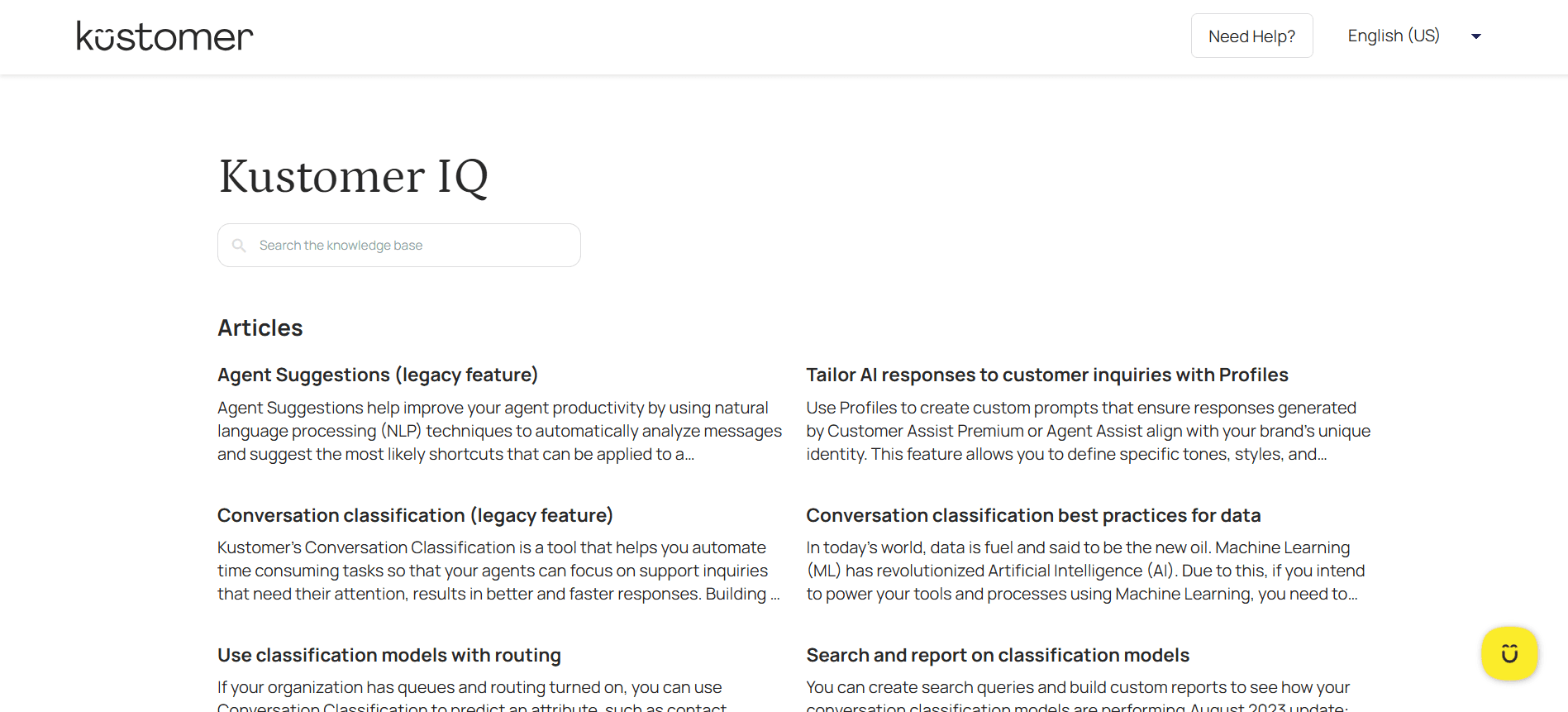
Kustomer IQ connects AI across all Meta-owned platforms, allowing brands to manage conversations seamlessly from WhatsApp, Messenger, and Instagram.
Use Case / Strength: AI-powered messaging for social-heavy customer interactions.
Key Features: Unified inbox, sentiment tagging, routing, automation flows.
Results: Faster response times and higher satisfaction for social queries.
Considerations: Limited to Meta’s social ecosystem.
Best For: D2C brands and social media–driven support.
Pricing: Quote-based; custom per user and message volume.
For organizations that prioritize full control over data and latency, our Enterprise Voice AI On-Premises Deployment Guide outlines how on-premises solutions can ensure compliance and reliability.
Real-World Examples of Successful AI Chatbot Implementations
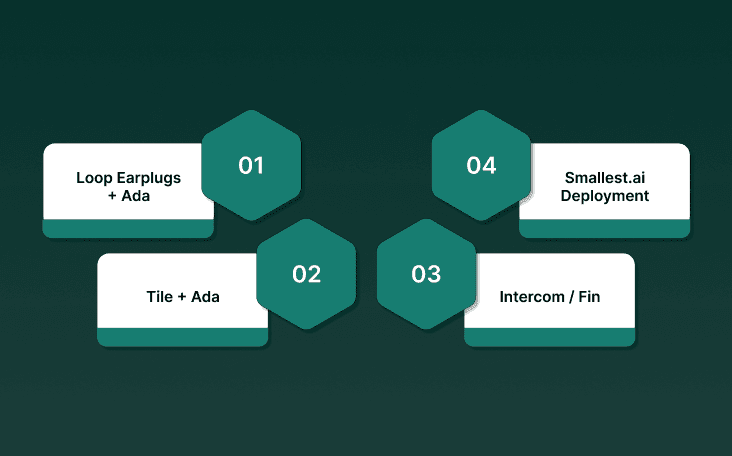
Seeing theory in action is what turns decision fatigue into confidence. Below are strong examples of how AI customer service chatbot solutions have been deployed in real businesses. Each use case addresses the challenges your team may encounter when scaling support with AI.
Loop Earplugs + Ada
Loop Earplugs was struggling with long response times during peak sales periods and ticket backlogs that stretched into days. They launched Aura, their AI agent built on Ada's platform, across chat, email, and social channels. The results were dramatic: a 357% ROI, 194.52% faster first response times, and a 33% reduction in human ticket volume.
Why It Matters: They managed seasonal surges without proportionally expanding headcount, while improving service quality and scaling efficiently.
Tile + Ada
Tile used Ada to automate basic service flows and hand off complex cases to agents only when needed. In one year, they delivered a 291% ROI, freed up over 25,000 agent hours, and saved more than $433,000 in support costs.
Key takeaway: Even hardware and physical product companies can achieve significant returns by leveraging chatbot automation.
Intercom / Fin (Internal Use Case)
Intercom built its own AI agent, Fin, to handle support for its product. Under optimized settings, Fin is claimed to resolve up to 86% of conversations automatically. During scaling, they addressed latency, fallback quality, and multi-region consistency.
Key takeaway: Building your own AI chatbot at this level reveals important reliability and orchestration challenges early, thereby strengthening your system's overall performance.
Smallest.ai Deployment in Contact Center Automation
Smallest.ai's own positioning is in the enterprise voice + chat space. Contact centers utilize their platform for real-time voice agents with sub-100ms latency, multilingual support, and hybrid chat and voice automation. Their guides also highlight deployments on-premises for secure or regulated environments.
Key takeaway: This is a prime example of how AI customer service chatbot solutions (and voice agents) can power large-scale, latency-sensitive interactions that traditional chatbots can't support.
These real-world deployments prove that scaling support with AI customer service chatbot solutions is not an idealistic bet — it’s a proven lever for operational transformation. Use them as benchmarks, not roadblocks: expect tradeoffs, but define clear metrics and enforce iteration.
Conclusion
Scaling customer support is no longer about hiring faster; it’s about building systems that grow intelligently with your business. AI customer service chatbot solutions make that possible by combining speed, accuracy, and consistency in every interaction. From small teams managing rising ticket volumes to global enterprises serving millions, these tools turn service operations into a competitive advantage. The businesses that win will be those that use AI to deliver genuine customer value — not just faster replies.
Smallest.ai enables this transformation with enterprise-grade voice and chat AI that responds in real-time, scales globally, and meets strict data requirements without compromising accuracy.
Ready to scale your customer support with AI that listens, learns, and delivers? Book a demo today
FAQ’s
1. What types of requests can AI customer service chatbots handle?
AI chatbots are designed to resolve routine inquiries such as password resets, order tracking, product information, and appointment scheduling, while escalating complex or sensitive issues to human agents for personalized support.
2. How do AI chatbots integrate with existing support systems?
Most leading chatbot platforms offer integration via APIs or native connectors, allowing seamless data sync with popular helpdesk, CRM, and live chat tools like Zendesk, HubSpot, Freshdesk, and Salesforce, supporting unified workflows and analytics.
3. Is customer data secure when using AI chatbots?
Enterprise-grade AI chatbot solutions employ secure protocols, data encryption, and compliance-support features (such as GDPR, HIPAA) to protect customer information and ensure privacy in regulated industries.
4. Can AI chatbots provide support in multiple languages?
Many top chatbots now feature robust multilingual capabilities, supporting dozens of languages for global support teams and helping businesses deliver consistent service across regions.
5. How do companies measure ROI from chatbot implementation?
Organizations typically track metrics such as ticket deflection rate, first response time, customer satisfaction scores (CSAT), reduction in agent workload, cost savings, and increases in engagement to evaluate chatbot ROI and impact.


